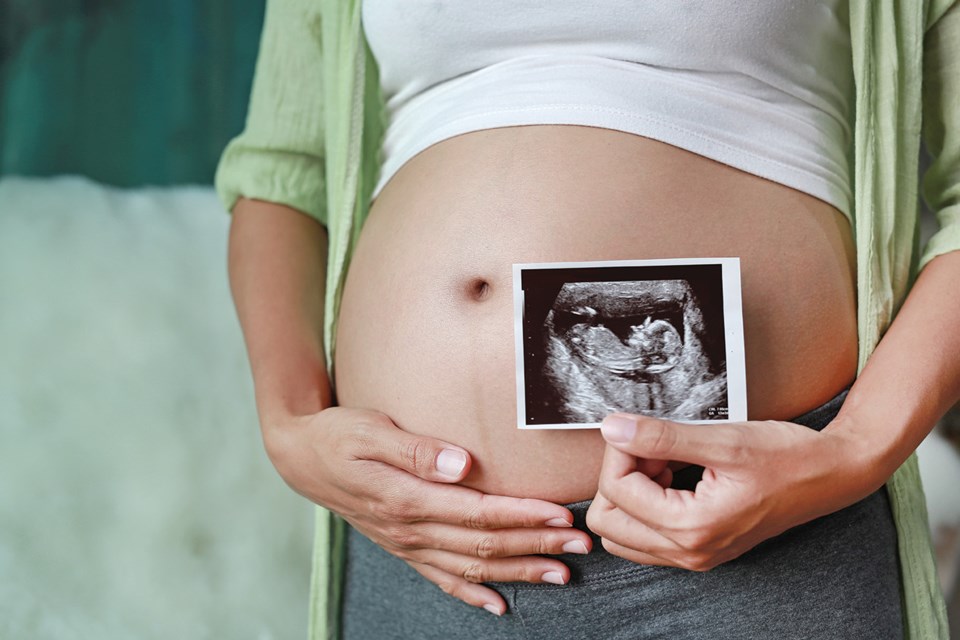More babies are being born in Squamish rather than in the city, and that is a good thing for both moms and babies, says local obstetrician-gynaecologist Dr. Kim MacDonald.
A new maternity program, which included the hiring of MacDonald, was launched at the beginning of 2016.
Since that time, Squamish has gone from an average of 200 to 220 births a year at Squamish Hospital to between 350 to 370 expected by the end of this year.
“This is a really big volume change, which is great,” MacDonald said.
“We know that in general, birthing in the community is one of the really strong fabrics of the community. Not just the birth itself, but what that means to families having birthed closed to home and sharing that with other family members.”
The increase in local births is attributed to more consistent service for mothers in the hospital.
More nurses who specialize in delivery have been hired, for example.
Some nurses who live in the Sea to Sky Corridor, but were working in the city, now work closer to home at Squamish Hospital. “We have an amazing resource in this community to tap into for nursing and so we get really quality nursing that lives next door,” MacDonald said.
Whereas before the program was launched, sometimes a woman who was a good candidate to deliver locally would be diverted to hospitals in the city because there wasn’t the staff or bed space for them, currently it is very rare for a woman without complications to be turned away at Squamish Hospital.
“The hospital had a bit of a reputation before that,” said MacDonald, who added the feeling among some in the community was, “you are going to plan to deliver in Squamish and you could show up at the door and very well be told you have got to leave.”
That is not the case now.
About a year ago, a second operating room also opened at Squamish, which has meant cesarean sections can be done at Squamish Hospital any day of the year.
“We always had that capacity theoretically, but sometimes it was a little thin and it was one of the things that could make someone be diverted, but the OR expansion has reinforced that.”
Having MacDonald as a local OBGYN paired with a more organized system has meant various births that would previously have been diverted, such as twin births, vaginal breach births and vaginal births after cesareans have been successfully delivered in Squamish.
In addition, some family doctors in the community have formed Mountain Maternity, which has also had a positive influence on increasing the number of births that occur in Squamish, MacDonald said.
“And the midwives have continued to have their collaborative practice which is also really strong and positive,” he added, referring to Roots Community Midwives.
In Squamish, a family doctor and or a midwife are responsible for the primary care of an expectant mother, and MacDonald works as a consultant and helps out with more complicated cases, he explained.
MacDonald said there is currently a strong sense of collaboration among those in the various professions who support pregnancy and delivery in Squamish.
Squamish could safely deliver 425 babies a year, he said, adding a small proportion of births happen too early or are too complicated to occur in Squamish.
There are about 500 babies born to women in the Sea to Sky Corridor a year, including both home and hospital births, MacDonald said.
“We have a population that is highly concentrated in young, reproductive aged women,” MacDonald said.
“And we have lots of families moving here. It is one of the niche things that we do a lot of in the corridor.”
A second obstetrician will soon be hired for Squamish, MacDonald said.
“It is busy enough that we actually probably need two of us for call coverage and supporting the family doctors and midwives,” he said. “
That is another step forward because it assures that 24/7 we always have that coverage available.”
Longer term, MacDonald said the next challenge will be the physical space in the hospital in terms of being able to accommodate the growing population in the Sea to Sky Corridor. “We aren’t quite there, but that is our next barrier,” he said.
Perinatal Services BC, which runs provincial maternity care, has identified Squamish as one of five communities in the province for funding for a study on how maternity care operates in the Sea to Sky Corridor.
Therefore, a Maternity Care Project has been launched.
The first step of the project is to ask families about their birth experience, strengths of their care and ways that their care could be improved, MacDonald told The Chief.
Those who have received maternity care in the corridor within the last three years, or are currently pregnant, are asked to complete a survey at bit.ly/2z1HdPa. For more information go to seatoskymaternityproject.com or email [email protected].
Surveys will be collected until Dec. 31st.



